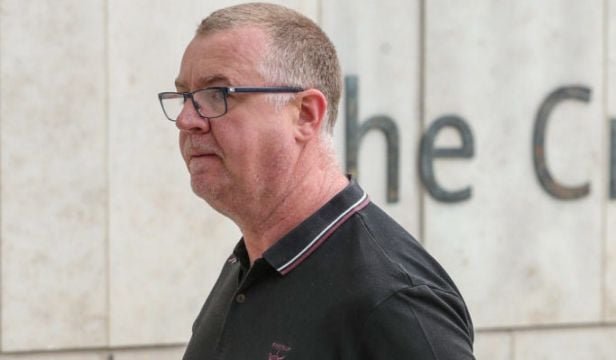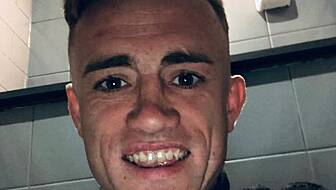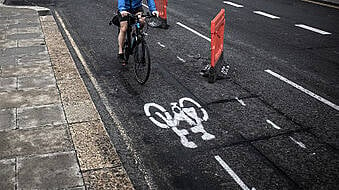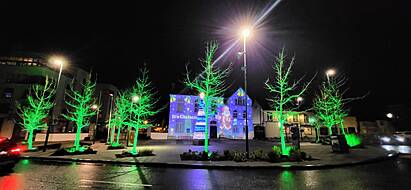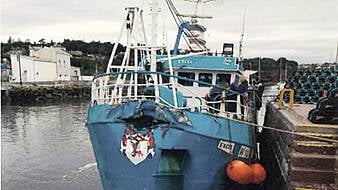The "spotter" in a gang who gunned down veteran criminal Eamon Kelly over a decade ago has failed in a bid to overturn his murder conviction.
Darren Murphy’s lawyers had claimed that the process that identified him from CCTV was flawed and raised a Garda witness credibility issue.
In 2012, father-of-nine Kelly was shot four times in the back by a gunman as he walked towards his home on Dublin's northside. He was one of the country’s most well-known crime figures, having been involved in organised crime for more than four decades.
In November 2021 at the Special Criminal Court, Mr Justice Alexander Owens said the court found that Darren Murphy (53), of George’s Place, Dublin 1, who had denied the charge, was guilty of the murder of Kelly at Furry Park Road, Killester, Dublin 5, on December 4th, 2012.
Insufficient evidence
The court found Murphy not guilty of possessing a Glock pistol with intent to endanger life on the same date and location due to insufficient evidence.
In January 2022, the three-judge court imposed a life sentence on Murphy, of George's Place, Dublin 1, for his role as a "spotter" in murdering 65-year-old Kelly.
Murphy was involved in the murder as part of the common design of the murder gang, said Mr Justice Owens, when sentencing Murphy. "This involved him meeting with other members of the gang on the day of the murder. He acted in concert with them as the net closed in on Kelly and in coordination with them in the immediate aftermath of the shooting," he said.
CCTV footage, he said, established that members of the gang were "scouting" in Killester in the afternoons leading up to and on the day of the murder.
In 2015, Sean Connolly, then aged 35, of Bernard Curtis House, Bluebell, Dublin, was jailed for life by the Special Criminal Court for Kelly's murder.
CCTV
At the Court of Appeal hearing, Paul Carroll SC with James McCullough BL argued that the case against his client, Murphy, "boiled down to the visual identification" by gardaí of Murphy from CCTV footage.
Mr Carroll had submitted that gardaí had prior knowledge of the date displayed on the CCTV footage shown to them related to the shooting and that some gardaí had looked up Murphy in connection with the shooting on the Garda Pulse information system before being shown CCTV.
Mr Carroll said the superintendent in the case had put in place a new process regarding recognition evidence whereby gardaí were summoned to Balbriggan Garda Station in June 2018 without prior knowledge that the reason was to view CCTV.
Of those 58 gardaí, eight gardaí identified Murphy from CCTV walking his dog in the inner city, which then allowed gardaí to then track Murphy's movements throughout the day, including where he met up with others and travelled in convoy to Killester, where Kelly was murdered.
At the Court of Appeal on Tuesday, Ms Justice Úna Ní Raifeartaigh, in dismissing the appeal, said “the [CCTV] process adopted were excellent in many respects”.
Ms Justice Ní Raifeartaigh said the court was “satisfied that the members in charge of the exercise did not themselves know what the investigation in question was”.
The judge said individual gardaí conducted the identification process relating to the CCTV “in isolation” from other members and that the process had been recorded.
“It might be said that the failure of numerous gardaí to identify the appellant tends to support the conclusion that the process was not pre-loaded in some way that it would tilt a garda towards a positive identification,” said Ms Justice Ní Raifeartaigh.
Ms Justice Ní Raifeartaigh said the presence of a stamp on the CCTV footage of the date of the murder did not “introduce an inherently unfair or prejudicial element into the recognition” as there was six years between the murder and the CCTV identification.
It had been argued by Murphy’s lawyers that gardaí who told the trial that they were not aware of any connection between the CCTV identification and the shooting “lacked credibility”.
Ms Justice Ní Raifeartaigh said the Special Criminal Court had drawn a “clear distinction” between any knowledge some gardaí had of the shooting and their knowledge in 2018 - six years later.
Witnesses
The judge said the Court of Appeal was satisfied that the Garda witnesses had made “firm and untainted identifications”.
Ms Justice Ní Raifeartaigh said the trial court was “well within” its remit in making findings of fact on credibility and identification and did engage with matters raised by the defence.
None of the findings of fact were “perverse such as the appellate court would be entitled to interfere with them”, she said.
It has been submitted by the appellant that the trial court had also erred in finding Murphy guilty by way of murder on the basis of a joint enterprise because the evidence was “insufficient”.
Ms Justice Ní Raifeartaigh said the appellant submitted that there was no evidence at the trial that Murphy had “realised or foresaw” that a murder was to take place or that he himself was of “murderous intent”.
Ms Justice Ní Raifeartaigh said the trial court “set out in meticulous detail the individual items of circumstantial evidence” against Murphy.
“We agree entirely with the court’s conclusion that the evidence as a whole made it clear that this was not a spontaneous endeavour,” said the judge.
Ms Justice Ní Raifeartaigh said Murphy was involved in careful planning, advance surveillance and practice runs, while his “spotting” was an exercise with others to place Kelly at the scene so he could be “ambushed”.
Ms Justice Ní Raifeartaigh then said the court would dismiss the appeal in its entirety.
Appeal hearing
At the appeal hearing, Mr Carroll said the Special Criminal Court "made errors" in both admitting the CCTV footage and again on the "weight" they gave to it as evidence.
"If someone was aware of the connection between my client and the investigation it wouldn't rule it [identification] out but it would affect the weight in knowing well my client was a suspect and then they are being asked to pick him out again," he said.
Mr Carroll said that another concern was that one of the CCTV stills used in the identification process had nobody but his client in the shot instead of Murphy being picked out of a number of people walking on a street.
The barrister said that the date of the murder was also "writ large" on the CCTV footage viewed, but that "not one" of the identifying gardaí said they noticed the date of December 4th, 2012.
Court of Appeal president Mr Justice George Birmingham asked "could someone give you the date of the Veronica Guerin murder or the Regency Hotel murder, for example? I find it hard to believe people hold that".
"It's members of An Garda Síochána accessing Pulse and Darren Murphy lives in their district," said Mr Carroll.
"If a murder suspect was in your district, any Garda worth their salt would take an interest," said Mr Justice Birmingham.
"That's the point. They were looking this up. It's a credibility issue that the court just didn't deal with," said Mr Carroll.
Responding, Dominic McGinn SC for the State said "the system is entirely transparent".
"If there were any shortcomings it was open and the defence did challenge that. The way it was done was abundantly clear," said Mr McGinn.
Mr McGinn said the gardaí involved were contacted without knowing what the matter was about "and neither did their sergeants".
"There was no indication at all regarding what the material related to and no clear flags on the footage as to what it might be about. The date was there but the locations were not clear.
"There was nothing on it as a clear marker as to where it came from and nothing as to the shooting," said Mr McGinn.
"The details of Pulse were disclosed, as were all the search dates for those involved in the process who were looking for Darren Murphy or the Eamon Kelly investigation. The defence had all that," said the barrister.
"The defence was able to examine the process in great detail and highlight any inconsistencies," said Mr McGinn, who added that the identification process itself was also filmed and placed on a DVD that was also disclosed.
"Nothing that would have made that process inadmissible. The probative value of that was enormous," he said.
Regarding the credibility of the witnesses, Mr McGinn said it was "within the province of the Special Criminal Court to assess that they were credible". Mr McGinn said these gardaí had accessed Pulse regarding Murphy and the investigation "many months, sometimes years prior" to the 2018 identification.
